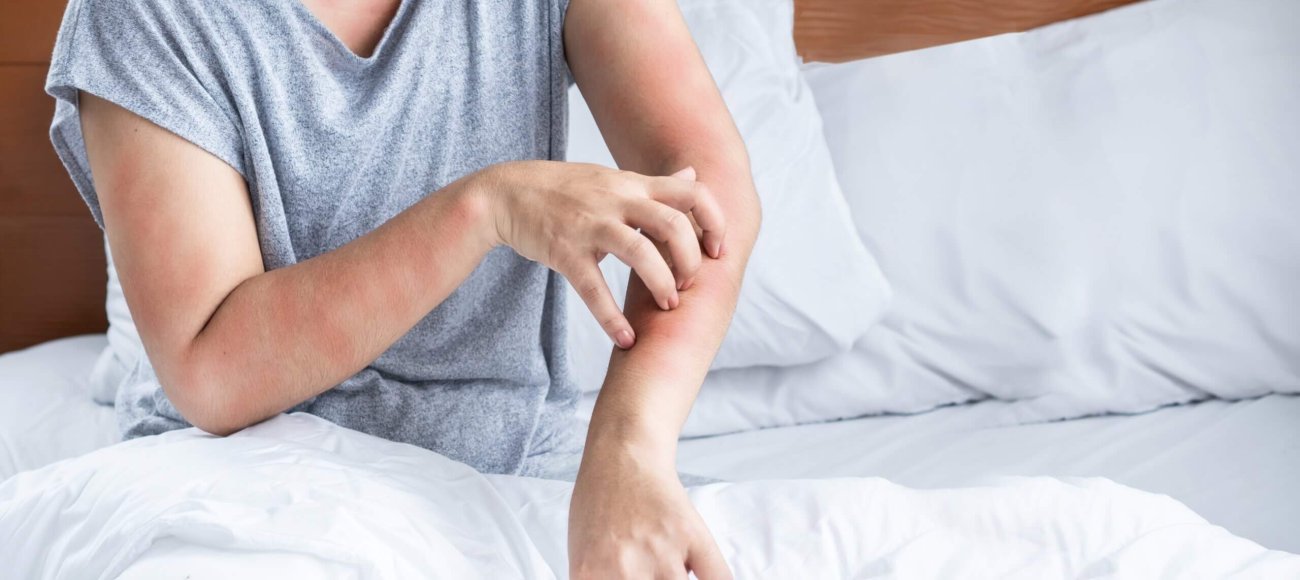Bed bug infestations have been increasing worldwide, and causing a lot of distress and discomfort. Such infestation in homes, hotels, or any living space contributes to a debased quality of life for the affected people. This article discusses the origin and impact of bed bug infestations on the quality of human life and what we can do to reduce the extent of infestations.
Origins of Bed Bug Infestations
Bed bug infestations originate from typical human activities such as use of infested/used furniture and traveling. Travel is one major route of dispersal, and bed bugs do exceptionally well in high turnover areas, including hotels, public transport and hostels.They are great hitchhikers and can easily latch onto:
- Luggage
- Clothing
- Furniture
Once introduced to a new environment, they reproduce rapidly, making it challenging to control their population.
Impact on Quality of Life
Physical Health Impacts
Skin Reactions and Allergies
Bed bug bites can instigate a wide array of skin reactions in humans, from mild irritation to severe allergic responses.
- Bedbug bites are usually marked with red welts that can become very itchy.
- In some cases, people may develop blisters or intense itching that leads to scratching and secondary infections.
- In other cases the impact of bed bug infestations might be much more serious, such as allergic reactions – causing swelling, pain, and, in rare cases, anaphylaxis.
Sleep Disturbances
Living with bed bugs causes disruption of sleep. If one knows that bed bugs are most active at night, he or she is less likely to go to sleep or even remain asleep due to anxiety. The continuous itching and discomfort from their bites exacerbate sleep disturbances further.
Chronic sleep deprivation, often the impact of bed bug infestations, can lead to a host of other health issues by suppressing immune function, impairing cognitive functioning, and increasing the risk for chronic diseases such as hypertension and diabetes.
Mental Health Impacts
Anxiety and Stress
Bed bugs cause a lot of stress in individuals. Anxiety from the fear of getting bitten, frustration due to the problem, and stigma due to bed bugs can all cause enormous emotional trauma. Constant fear of unknowingly transporting bed bugs into other settings, like work or school, leads to further anxiety.
Depression
Living with bed bugs may accompany feelings of helplessness and depression. The impact of bed bug infestations can be particularly distressing as these pests are difficult to eliminate, thus causing stress. The hassle of extermination may lead to physical discomfort, primarily sleep disturbance, a factor that raises vulnerability to major depression.
Social Isolation
Feeling stigmatized by bed bugs can lead to social isolation. One might avoid inviting friends or family members into their home, fearing either spreading the infestation further or being judged in some way. This isolation increases feelings of loneliness and depression, thereby inventing a vicious circle from which there seems no way out.
Reducing Bed Bug Infestations to Improve the Quality of Life
Reduction of bed bug infestations can only be achieved with an integrated approach. The first step is to identify the infestation. Common signs include small blood stains on bedding, dark spots of bed bug excrement, and shed skins. Once confirmed, the following steps can then be employed:
- Professional Pest Control: Hiring a licensed pest management professional is the most effective means of eradicating bed bugs and reducing the impact of bed bug infestations on your daily life.
- Heat Treatments: Bed bugs are very susceptible to heat. If the infested areas are exposed to temperatures over 120°F for a few hours, it can kill the bed bugs and their eggs. The procedure is often combined with chemical treatments to attain maximum effect.
- Chemical Treatments: There are several insecticides for treating bed bug infestation. These chemicals require careful application so that there is no health hazard to human beings and pets.
- Non-Chemical Methods: Vacuuming, steaming, and encasing mattresses and box springs in bed bug-proof covers can contribute to reduction in their population and inhibiting further spread.
- Integrated Pest Management (IPM): A combination of methods such as – regular monitoring, sanitation, and preventive measures,bring about long-term control and reduction of impact of bed bug infestations.
Living with bed bugs may accompany feelings of helplessness and depression. These pests are difficult to eliminate, thus causing stress. The hassle of extermination may lead to physical discomfort, primarily sleep disturbance, a factor that raises vulnerability to major depression. There is a considerable impact of bed bug infestations on physical health, mental well-being, social interactions, and financial stability. Learning about the sources of the infestations, their effects on human beings and pets, and adopting methods of killing them effectively are important steps in keeping control over these pests. Armed with an integrated approach involving professional pest control, non-chemical methods, and continuous monitoring, man can win back his living space from these relentless invaders.
Role of MIS
Expert testing facilities play an essential role in the development of biocides against bed bugs. Before being put on the market, these facilities subject novel biocides to extensive testing in carefully monitored environments to ensure their efficacy and safety. In addition to obtaining regulatory permission, this testing is essential to earning the public’s and pest control experts’ trust.
At Microbe Investigations Switzerland, we provide biocide efficacy testing services against bed bugs. Our advanced testing techniques provide accurate and reliable assessments of your biocidal products, ensuring they meet the latest regulatory standards and deliver optimal performance. Trust MIS to help you stay ahead in the fight against bed bugs with our cutting-edge testing services.
To learn more about our advanced biocide testing methods or to schedule a consultation, please contact our experts today.














